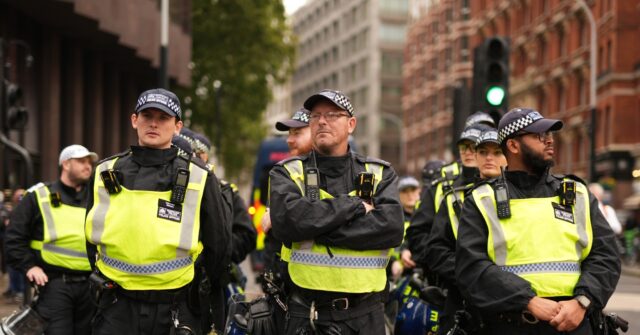On Remembrance Sunday, a veteran journalist in Britain, Allison Pearson, faced an unusual visit from the police concerning alleged “stirring up racial hatred” through her social media comments. Pearson, a long-established conservative columnist for the Daily Telegraph, reported that two officers arrived at her home, informing her of an ongoing investigation regarding posts she had made a year prior on Elon Musk’s social media platform, X. When she inquired about the specifics of her supposed offenses, the officers remained tight-lipped, not even disclosing the identity of her accuser, instead referring to them as “the victim.” Pearson reflected on the surreal nature of the encounter, highlighting the Orwellian echoes in their approach and questioning the arbitrary standards used to define hate speech.
The police investigation stems from a report made by another law enforcement agency, focusing on a social media post that was removed. The legal basis for this investigation deems the communications in question as potentially violating Section 17 of the Public Order Act 1986, which concerns content that could instigate racial hatred. The situation underscores a broader issue in the UK regarding hate speech legislation, prompting discussions about the implications of such laws on freedom of expression. The case against Pearson particularly shines a spotlight on the tension between safeguarding free speech and the perceived need to regulate harmful communication online.
Despite a history of criticism against the recording of non-crime hate incidents, the framework for prosecuting such incidents largely remains intact, even with the arrival of the Labour government under Home Secretary Yvette Cooper. The government response to online discourse, particularly in light of events like the October 7th Hamas attacks, has seen an increased push for stricter regulations on hate speech, especially with regard to antisemitism and Islamophobia. These developments illustrate how the legal mechanisms for addressing hate speech have transformed, allowing for a more expansive interpretation that critiques the intentions behind certain expressions rather than actual criminal conduct.
Since its introduction in 2014, over 120,000 non-crime hate incidents have been recorded across the UK, even though these “incidents” don’t meet criminal standards. The consequences of such a classification can be profoundly damaging, as individuals may find themselves unjustly flagged in police databases, with recent trends indicating that employers might use such records to vet candidates. Moreover, there are limited avenues for those accused of non-crime hate incidents to defend themselves or seek redress, as these claims often lack formal adjudication processes or trials.
Critics, including officials from the Free Speech Union, have voiced concerns that the prevalence of recording non-crime hate incidents reflects a misguided approach to law enforcement—one that diverts resources away from addressing actual crime. Former Conservative Home Secretary Suella Braverman has publicly supported a movement aiming to limit the scope of social media policing, urging the current Labour government to prioritize free speech over restrictive measures against perceived wrongthink. This critique of the police’s focus on social media content rather than more pressing street crimes illustrates an ongoing debate about policing priorities in the digital age.
Pearson’s case highlights an urgent need for a critical evaluation of freedom of expression vis-à-vis regulatory frameworks designed to combat hate speech in today’s society. With an increase in reported hate incidents but no clear evidence suggesting that such regulations effectively deter real crimes, advocates for free speech argue for a recalibration of focus within law enforcement. The encroachment of thought policing raises fundamental questions about who determines the boundaries of acceptable expression and whether the protection of marginalized voices should come at the expense of broader civil liberties in a democratic society, harkening back to Orwellian concerns about state overreach in personal freedoms and thought.

